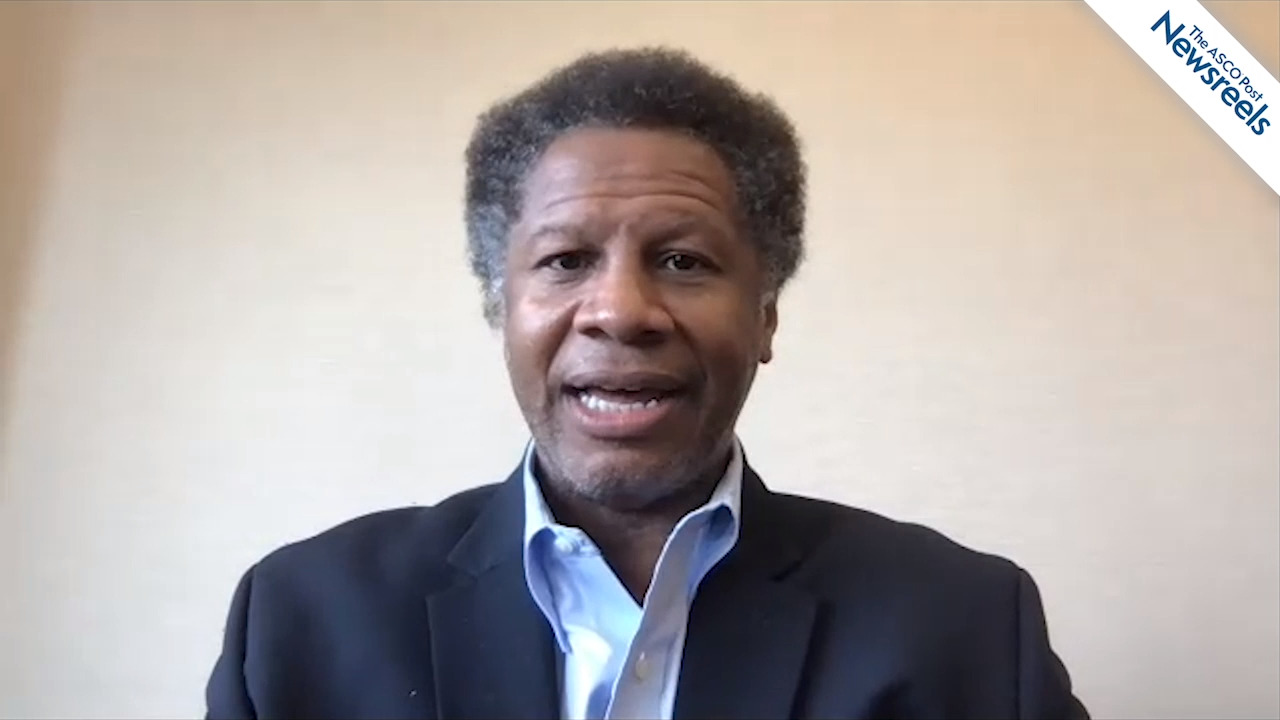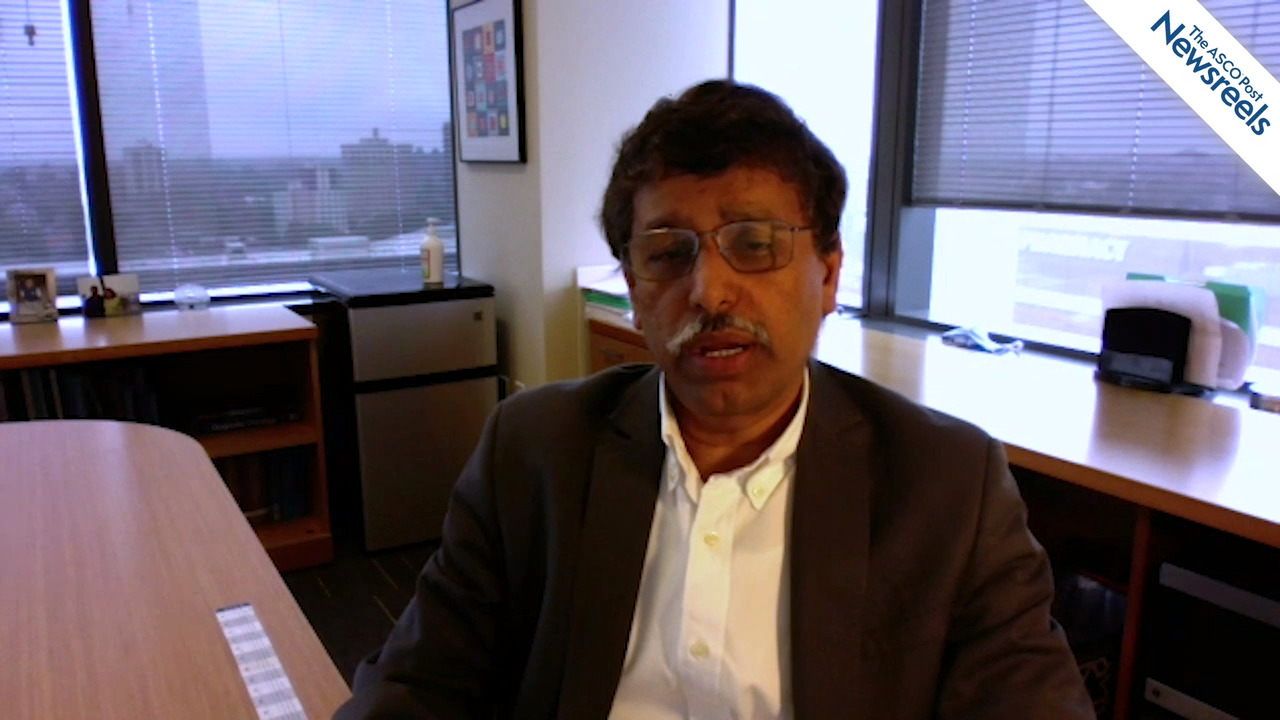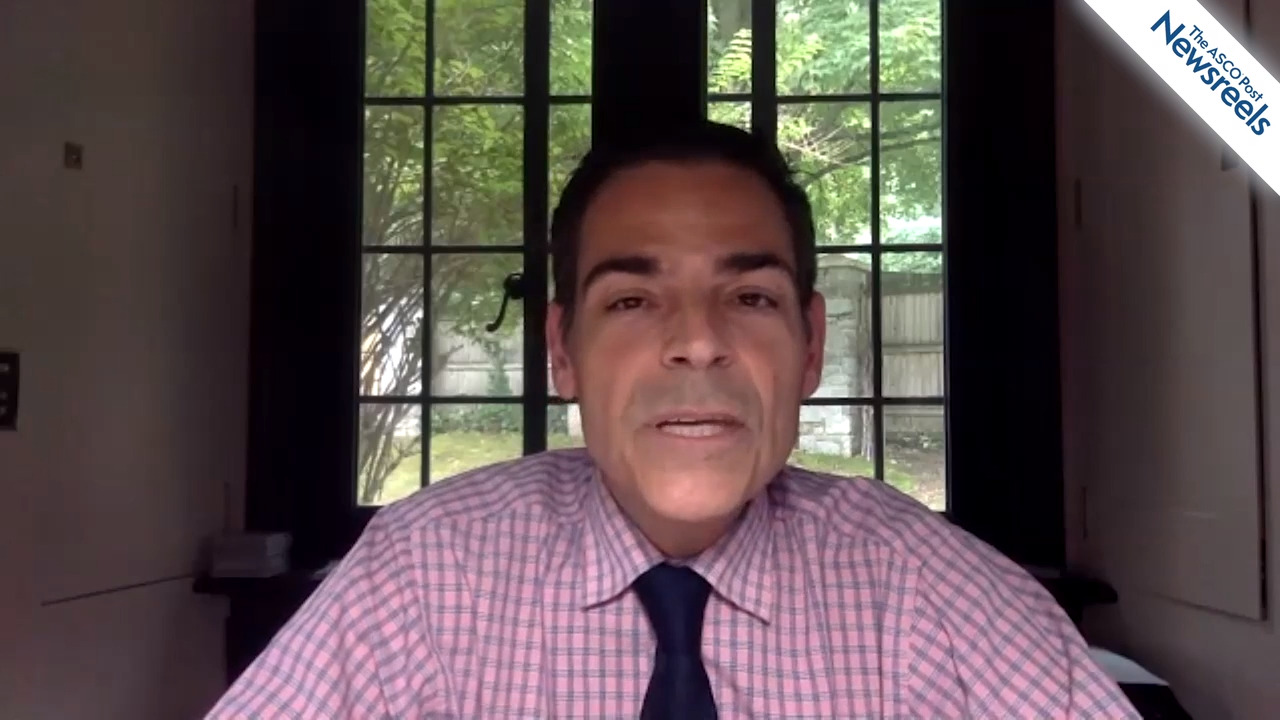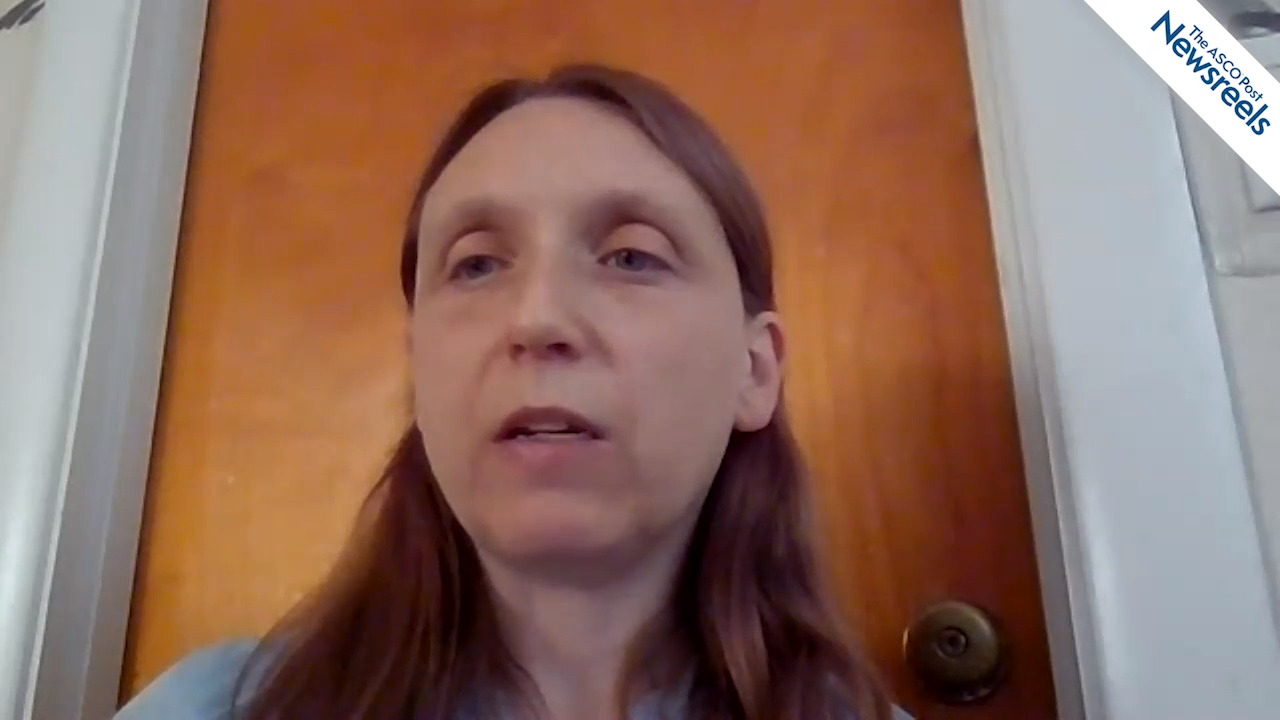Adam C. Palmer, PhD, on Immune Checkpoint Inhibitors: Additive to or Synergistic With Other Treatments?
AACR Virtual Annual Meeting 2020 II
Adam C. Palmer, PhD, of the University of North Carolina at Chapel Hill, discusses combining immune checkpoint inhibitors with other cancer therapies to provide patients with more chances of a response. In principle, similar benefits may result from sequential or biomarker-stratified treatments, which could be valuable in cases where toxicities may prevent full-dose combinations (Abstract 1047).
The ASCO Post Staff
Robert A. Winn, MD, of Virginia Commonwealth University and the Massey Cancer Center, discusses the COVID-19 pandemic and how it is exacerbating disparities in cancer care among racial and ethnic minorities and the medically underserved who are disproportionately affected by the coronavirus (Session VSS06).
The ASCO Post Staff
Ramaswamy Govindan, MD, of Washington University School of Medicine, discusses sex differences in lung cancer, including variations in treatment response, and the state of research in the field (Session ED20).
The ASCO Post Staff
Xavier Llor, MD, PhD, of Yale University School of Medicine, discusses the steep rise of early-onset colorectal cancer over the past 15 years, which cannot be explained by genetic predisposition but may be prompted by environmental factors (Session ED35).
The ASCO Post Staff
Ralph R. Weichselbaum, MD, of the University of Chicago Cancer Research Center, explores the question of whether radiotherapy is the principal curative treatment with immunotherapy or activates immunotherapy. He also discussed how to improve the interaction of these treatments, perhaps with vaccination, transfer of genetically engineered T cells, or checkpoint inhibitors (Session ED37).
The ASCO Post Staff
Elizabeth H. Stover, MD, PhD, of Dana-Farber Cancer Institute, discusses an analysis of genomic alterations in patients with relapsed ovarian cancer who were treated with nivolumab plus bevacizumab in a phase II clinical trial. The study was conducted to identify potential biomarkers of response (Abstract 1048).





